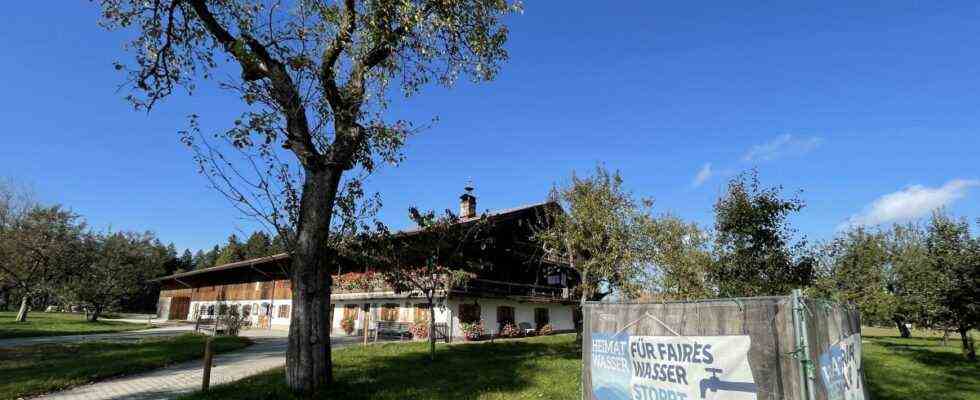In the ongoing dispute over an extension of the protected area for the Munich drinking water wells in the Mangfall valley, the Miesbach district administrator Olaf von Löwis (CSU) opposes an instruction from the government of Upper Bavaria. This asked the district office on Friday again to issue a ban on fertilization and grazing for the areas in question, in anticipation of the expansion that has been planned for years. This happened with a view to an opinion that Löwis submitted to the authority and now also presented to the public on Monday. Hydrogeologist Uwe Tröger came to the conclusion that cattle farming and fertilization practices in the area do not pose a threat to drinking water. Instead, Tröger warned on Monday to take care of the sewage treatment plants in the catchment area.
Tröger, who held the chair for hydrogeology in Berlin for around three decades until his retirement, based his assessment on the four days on which the Münchner Stadtwerke registered a germ load in the inflowing water in 2020 and therefore diverted it into the Mangfall instead of feeding it into their network. On all these days there was no connection with cattle, some of which were not grazing due to the season, but with floods in the Mangfall valley. The germs presumably came from sewage treatment plants, which were overwhelmed by the amount of precipitation and had to discharge untreated wastewater. Mixed sewer systems for wastewater and surface water are “a serious problem in our state and not just in Bavaria,” said Tröger.
The government rejected Tröger’s report on Friday. The ban on fertilization and grazing, as requested in 2019, only affects three landowners, who are also compensated for it. It is “a technically necessary measure that is provided for by the national technical rules”. This in turn meets with contradictions from Tröger and Löwis. They demand not to apply general official catalogs of criteria, but to consider each area individually. The Ministry of the Environment had agreed with Tröger as an expert, emphasized Löwis. Therefore, he has all the less understanding that the report is now being discarded without a professional debate. Löwis sees the fact that the government surprised him on Friday with the instruction, which was made public at the same time, to issue a ban on fertilizers and grazing by December 1, as a breach of trust. “I expect that it will be taken back,” said Löwis. “It seems like the superordinate authorities are arbitrary,” added Warngauer Mayor Klaus Thurnhuber. He took up a formula of the association “Our Water” and the “Heimatwasser” initiative, which opposed the expansion of the water protection area and possible restrictions for landowners and had taken up posts at the district office on Monday.
All of this is not about an urban-rural conflict or even about turning the water off the Munich residents, but about “an open-ended, transparent and legally secure procedure,” emphasized Löwis. A number of district administrators had simply left the procedure behind. Only Löwis’ green predecessor, Wolfgang Rzehak, felt obliged to push it forward. However, he failed because of the legal and politically orchestrated resistance and was voted out of office in 2020 after a term of office.

